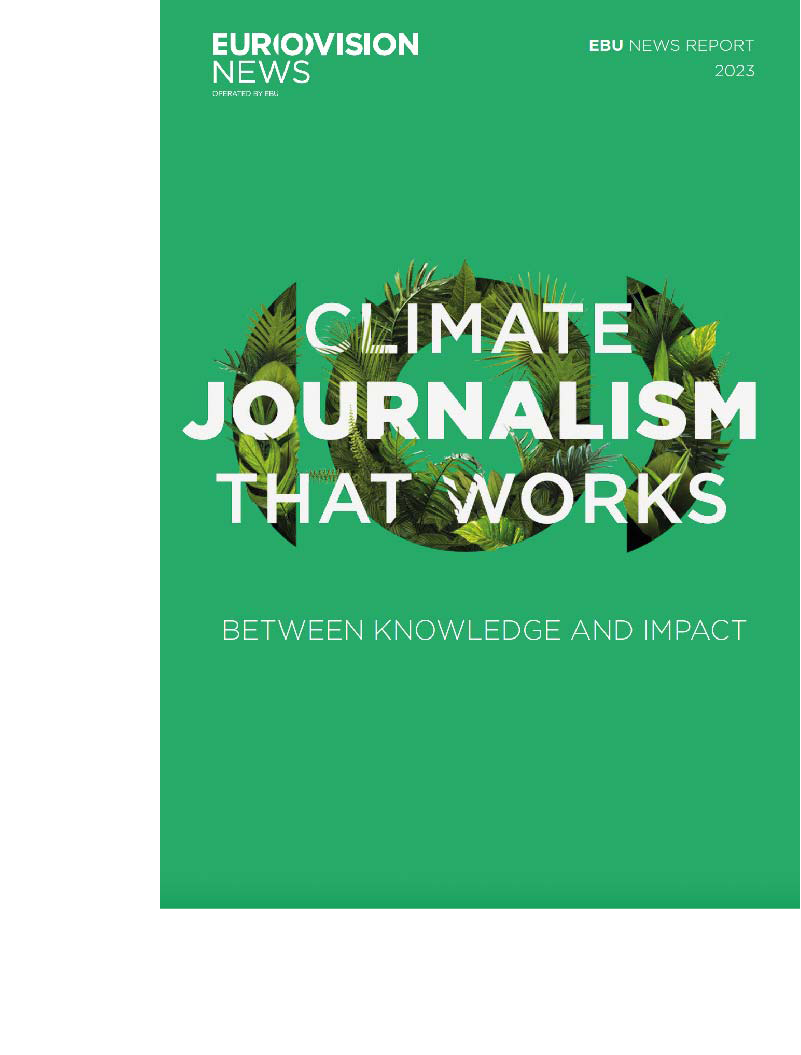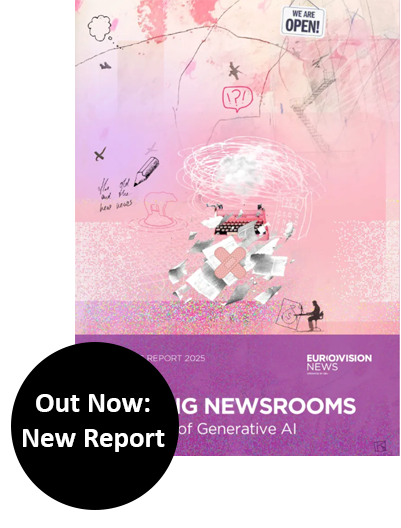If you work in the media industry and want to feed your pessimism, the Digital News Report 2025 makes it easy for you, because this is what it tells you: influencers are challenging established media brands right and left, news avoidance is at an all-time high, and it is becoming increasingly difficult (and costly!) to reach audiences because they are spread across even more platforms – sorted according to political preferences and educational level.. Welcome to the journalistic dreariness of the propaganda age! However, if you want to pave the way for journalism’s future, the only thing that helps is to look at things through the optimist’s glasses. And through these, the media world looks much friendlier already. Here are a few encouraging findings from the publication by the Reuters Institute for the Study of Journalism at the University of Oxford, whose material media professionals like to dissect and discuss:
Firstly, trust in established media is stable. This has been true for the global average for three years – this time, the report covers around 100,000 online users in 48 markets – but also for Germany, where the long-term study on media trust conducted by the University of Mainz recently recorded similar figures. Yes, things looked even better in Germany ten years ago. But the figure currently stands at 45 percent (Mainz study: 47 percent), which is respectable by international standards. As elsewhere, public broadcasters perform particularly well. In addition, the researchers note that users of all age groups prefer traditional media brands when they doubt the veracity of information. The oft-repeated narrative of dwindling trust in the media cannot be substantiated this year either – although trust in the media and media usage are two different things.
Secondly, attracting audiences to your own platforms – that can be done. At least, that’s what the Norwegians, Swedes, and Finns have proven. Public broadcasters there have invested heavily in their own video platforms and are very restrictive when it comes to posting their content on platforms such as YouTube or X. The Finnish broadcaster Yle now attracts more users to its platform than all other providers in Finland combined. The study tours to Scandinavia by many media professionals are therefore justified.
Thirdly, energetic journalists can benefit from the influencer trend and successfully start their own businesses.Frenchman Hugo Travers (Hugodecrypte) now reaches as many users aged 35 and under in France as established media brands: 22 percent of them said they had heard of him in the previous week. The audience appreciates the (perceived) authenticity and approachability of such personal brands. The fly in the ointment: many demagogues on the political right have benefited from this so far, and the line between journalism and opinion-making is blurred. Research by the news agency AFP has revealed that politicians in Nigeria and Kenya hired influencers specifically to spread false messages.
Fourthly, willingness to pay remains stable – and there is room for improvement. Okay, the percentage of people who pay for digital journalism averages 18 percent – that could certainly be higher. But it’s also quite something to know that, despite all the free content available online, around one in five people are willing to pay for journalism – in Germany, the figure is 13 percent. The researchers believe that the subscription market is far from exhausted. Where paying is already common practice, the key is to intelligently bundle offerings and create more interesting pricing models that cater to different types of users. Incidentally, regional and local newspapers in Germany stand out in international comparison with their subscription rates. On the one hand, the researchers speculate that this is an expression of federalism and the fact that many users strongly identify with their regions. On the other hand, projects such as data pooling in Drive or Wan-Ifra’s Table Stakes Europe may also have contributed to this success; they encourage the exchange of experiences, networking, and a focus on targeting specific audiences and user needs.
Fifth, text lives on – especially in this part of the world. Yes, there are highly respected experts who predict at AI conferences that the future of journalism lies in chat – specifically, spoken chat. People would rather talk and listen than write and read, they say. Elsewhere, media professionals complain that young users only digest short-form video, if they pay any attention to journalism at all. The figures do not support these claims. Text is still the most important format for 55 percent of users worldwide. This is different in some countries in Asia and Africa, which could also have to do with later literacy rates. But it is definitely still worthwhile for media companies to invest in first-class texts. There is ample evidence that young people also enjoy listening to long podcasts or binge-watching series. Only one thing does not work today and will work less and less as AI delivers decent quality: poor text.
Sixth, the audience is smarter than many journalists believe. When it comes to the use of AI, for example, respondents expect pretty much what is predicted or feared in the industry: journalism production is likely to become cheaper and even faster, while factual accuracy and trustworthiness will decline. Young consumers in particular are skeptical about media use and verify a lot. In countries such as Thailand and Malaysia, where journalism is largely consumed via TikTok and Facebook, users are very well aware that they may be exposed to lies or fantasy news on these platforms. When it comes to “fake news,” 47 percent of respondents consider online influencers and politicians to be the greatest threat, which is likely a realistic assessment. And many users worry that they could miss important stories if media companies personalize their offerings more in order to turn these users into loyal customers.
Incidentally, what respondents worldwide want from journalism is: more impartiality, factual accuracy, transparency, and original research and reporting. Media researchers couldn’t have put it better themselves.
This column was published in German for the industry publication Medieninsider on 17th June 2025.



